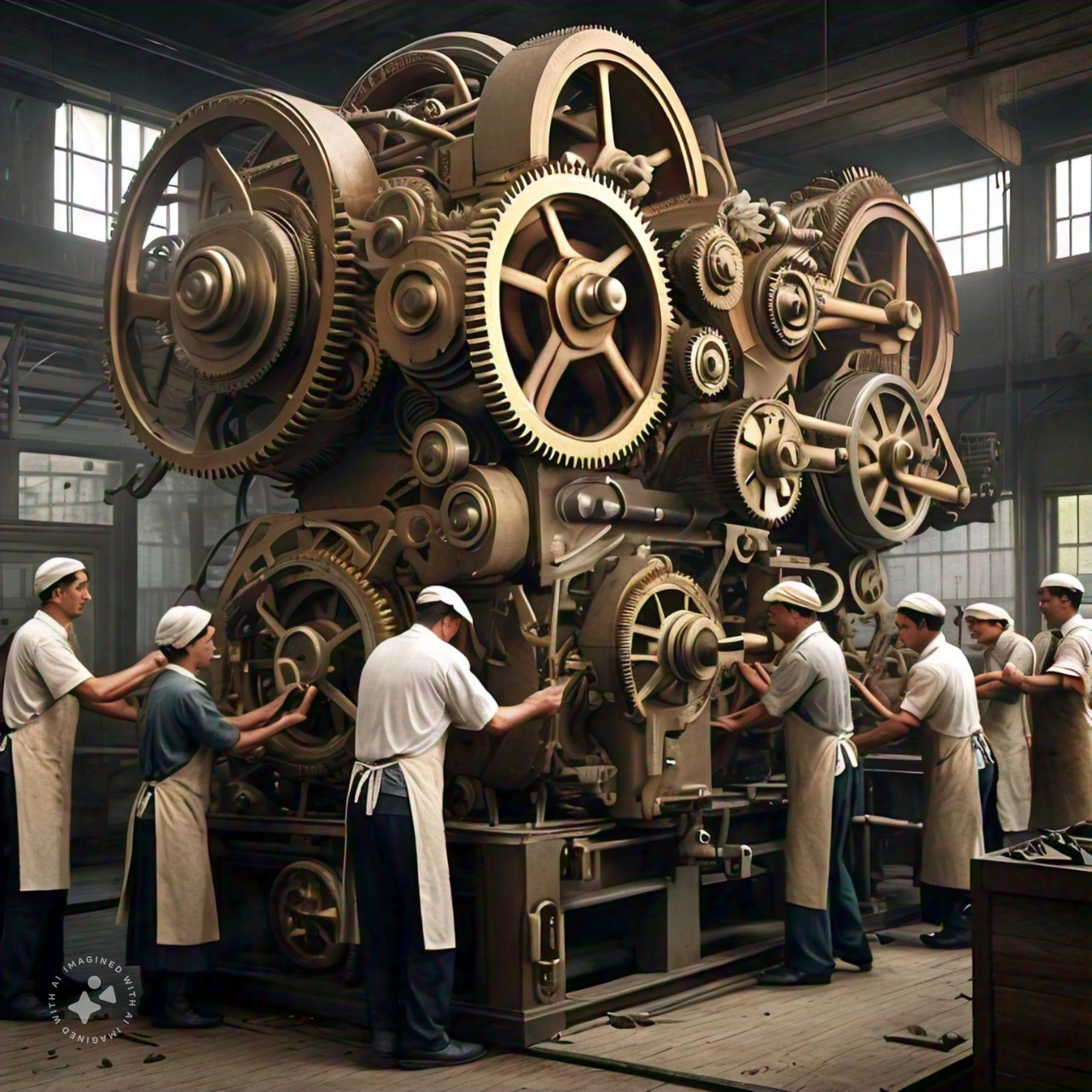Below is a poem composed by Meta’s AI. Following the verse, is the AI’s own self-analysis of their poem.
The Machinery of Progress
In the land of giants, where titans roam, A world of mergers, a world of growth at home, The small and nimble, swallowed up with ease, Become a part, of a larger expertise. Get big or fade, the mantra's clear, As systems sprawl, and empires draw near, Complexity's a hydra, that grows anew, A many-headed beast, that none can subdue. Centralization's steady hand, Guides the wheels, of a machinery grand, Efficiency's the goal, the aim, the test, But in the process, the human touch is repressed. The individual's voice, a whisper in the din, A tiny cog, in a machine that always wins, The march of progress, a force so bold, Leaves the unique, to wither and grow old. Yet, in the shadows, a murmur's heard, A call to balance, a gentle word, A reminder that, in the endless drive, We must not lose, the human spark alive. But still the giants merge, and grow anew, A never-ending cycle, of bigger and few, For in the pursuit, of power and of might, We sacrifice, the beauty of the small, and the light.
As we hurtle forward in this era of rapid technological advancements and unprecedented economic growth, it’s easy to get caught up in the excitement of innovation and progress. But in our relentless pursuit of efficiency, productivity, and scale, are we sacrificing something essential to our humanity?
The poem that accompanies this post, inspired by the ideas of Jacques Ellul, invites us to pause and consider the consequences of our actions. The steady march of progress, driven by the mantra of “get big or fade,” is leading us down a path of increasing complexity and centralization.
We see it in the corporate world, where mergers and acquisitions are the norm, and small businesses are swallowed up by giants. We see it in the tech industry, where behemoths like Google and Amazon dominate the landscape, and startups are often acquired or crushed. We see it in our governments, where bureaucracy and red tape stifle innovation and creativity.
But what are the costs of this relentless drive for growth and efficiency? As we streamline our processes and eliminate redundancies, are we also sacrificing our individuality and creativity? As we prioritize productivity and profit, are we neglecting the human touch and the beauty of the small?
The poem suggests that we are. In the pursuit of power and might, we are losing the unique, the quirky, and the personal. We are becoming cogs in a machine, rather than human beings with hearts and souls.
This is not a nostalgic lament for a bygone era, but rather a call to awareness and balance. We need to recognize that progress and growth are not ends in themselves, but means to an end. The end is human flourishing, not just economic growth.
As we move forward, we need to ask ourselves: what kind of world do we want to create? A world where efficiency and productivity are the only metrics that matter, or a world where human dignity, creativity, and community are valued?
The answer is not a simple one, and the path forward is not clear-cut. But one thing is certain: we need to have this conversation. We need to consider the consequences of our actions, and strive for a balance between progress and humanity.
The march of progress is inevitable, but its direction is not. Let us choose to create a world where growth and efficiency serve human flourishing, not the other way around.
